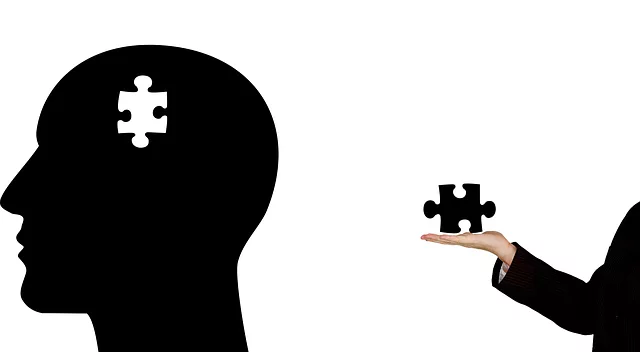Kaiser Family Counseling: Unlocking Parenting Skills for Better Results
Parenting classes backed by organizations like the Kaiser Family Foundation provide a transformative…….
In today’s complex social landscape, family counseling has emerged as a vital pillar of support for households navigating various challenges. Among the diverse array of counseling services, “kaiser family counseling” stands out as a comprehensive and influential approach. This article aims to guide readers through an extensive exploration of this unique field, delving into its definition, global reach, economic implications, technological integrations, regulatory frameworks, and future potential. By the end, readers will grasp the profound impact of kaiser family counseling and its role in enhancing family dynamics worldwide.
Definition:
Kaiser family counseling is a holistic approach to addressing family-related issues, emphasizing open communication, conflict resolution, and emotional well-being. It involves a multidisciplinary team of professionals, including psychologists, counselors, social workers, and family therapists, who collaborate to assess and support families’ unique needs. This method takes into account the intricate dynamics between family members, cultural contexts, and external factors influencing household relationships.
Core Components:
Assessment: The initial step involves a comprehensive evaluation of the family’s situation, identifying issues such as communication breakdown, conflict, mental health concerns, or structural problems.
Individual and Family Therapy: Trained counselors provide one-on-one or group sessions tailored to address specific needs. These sessions encourage open dialogue, promote understanding, and foster healthier relationship patterns.
Education and Skill-Building: Workshops and educational resources are utilized to equip families with valuable skills in communication, problem-solving, stress management, and parenting techniques.
Supportive Services: Kaiser family counseling often includes referrals to other specialized services like legal aid, financial counseling, or community resources to address broader family challenges.
Historical Context:
The concept of family counseling has evolved over the past century, gaining prominence in the mid-20th century with the rise of systemic therapy and family systems theory. The term “kaiser” is believed to have originated from early healthcare providers who offered comprehensive family services within a large medical organization, akin to the German ‘Kaiser’ (emperor) in their all-encompassing approach. Over time, this model has adapted and expanded globally, reflecting cultural variations while maintaining its core principles.
The reach of kaiser family counseling extends far beyond geographical boundaries, with significant global impact and evolving trends shaping its practice:
| Region | Impact and Trends |
|---|---|
| North America | The United States leads in family counseling accessibility, with a strong presence of kaiser-model services. Recent trends include increased digital therapy options and cultural sensitivity training for counselors to cater to diverse families. |
| Europe | European countries exhibit varying models, with some adopting the kaiser approach successfully. Online counseling platforms are gaining popularity, offering accessible support to remote areas. |
| Asia Pacific | The region witnesses a growing demand for family counseling, driven by changing social norms and increasing urban populations. Cultural adaptations of the kaiser model are being explored while maintaining traditional values. |
| Middle East & Africa | Access to mental health services is expanding in these regions, with some countries adopting comprehensive family counseling models. Community-based interventions focus on building resilience within families. |
The economic landscape surrounding kaiser family counseling is multifaceted and significant:
Market Dynamics: The global family counseling market is experiencing steady growth, driven by rising mental health awareness and an aging population. According to a 2022 report, the market value was estimated at USD 15.6 billion in 2021, projected to reach USD 23.8 billion by 2028.
Investment Patterns: Private equity and venture capital firms have shown interest in family counseling startups, recognizing their potential for positive social impact and long-term profitability. This influx of investment fuels innovation and expands service accessibility.
Economic Impact: Effective family counseling can lead to improved mental health outcomes, reduced healthcare costs associated with treatable conditions, and enhanced overall family stability. A study by the World Bank suggests that investments in mental health services, including counseling, can yield significant economic returns by decreasing productivity losses and increasing employment rates.
Technology has revolutionized kaiser family counseling, opening new avenues for service delivery and accessibility:
Online Counseling Platforms: Digital therapy platforms enable remote sessions, making counseling accessible to geographically dispersed families. Apps like BetterHelp and Amwell offer secure video conferencing, text-based chat, and on-demand resources.
Telehealth Integration: The COVID-19 pandemic accelerated the adoption of telehealth, allowing families to receive counseling from the comfort of their homes. This approach is particularly beneficial for rural or underserved communities.
Artificial Intelligence (AI) Applications: AI-driven tools assist counselors by providing initial assessments, personalized treatment recommendations, and continuous data analysis. Chatbots offer immediate support and basic guidance between sessions.
The regulatory environment surrounding kaiser family counseling varies across jurisdictions, impacting service delivery and professional practice:
Licensing and Certification: Most countries mandate licensing or certification for counselors, ensuring they meet specific educational and training standards. The American Association for Marriage and Family Therapy (AAMFT) is a prominent example, setting ethical guidelines and promoting professional practices globally.
Data Privacy Laws: With the rise of digital counseling, data privacy regulations like GDPR in Europe and HIPAA in the US are crucial. These laws protect client confidentiality and govern how counseling services can utilize and share sensitive information.
Reimbursement Policies: Health insurance coverage for family counseling varies internationally. Some countries have public healthcare systems offering partial or full reimbursement, while others rely on private insurance or out-of-pocket payments.
Despite its benefits, kaiser family counseling faces several challenges and criticisms that require thoughtful strategies to address:
Accessibility: In many regions, limited access to trained counselors and high costs can prevent families from seeking necessary support. Addressing this challenge may involve policy interventions, insurance coverage expansions, and community-based outreach programs.
Cultural Sensitivity: Providing culturally responsive counseling is essential for building trust and effective treatment outcomes. Critics argue that the kaiser model may not always account for diverse cultural norms and beliefs. Continuous training in cultural competence should be mandatory for counselors.
Stigma: Mental health stigma remains a significant barrier, especially in communities where seeking counseling is not socially acceptable. Raising awareness through public education campaigns can help normalize family counseling.
Case Study 1: Urban Family Initiative (UFI), USA
UFI implemented a comprehensive kaiser-model program within an urban setting, targeting low-income families facing multiple stressors. The initiative offered individual and group therapy sessions, parenting workshops, and community support groups. Results showed improved family functioning, enhanced parental skills, and reduced child behavioral problems. UFI’s success led to partnerships with local schools and healthcare providers, expanding their reach significantly.
Case Study 2: Family Support Network (FSN), Australia
FSN adopted a community-based approach, training local volunteers as peer counselors to provide kaiser-style support to rural families. This model addressed the challenge of limited access to professional counselors in remote areas. FSN’s program included home visits, group sessions, and online resources. The initiative was well-received, with participants reporting improved family connections and increased resilience.
Case Study 3: Tokyo Family Counseling Center (TFCC), Japan
In a highly structured society like Japan, TFCC adapted the kaiser model to address unique cultural challenges. They focused on fostering open communication within families and managing intergenerational conflicts. TFCC’s approach incorporated traditional Japanese values while employing modern therapeutic techniques. The center received positive feedback for successfully navigating cultural nuances and helping families navigate complex relationships.
The future of kaiser family counseling holds immense potential, with several growth areas and emerging trends shaping its trajectory:
Personalized Therapy: Advancements in technology and data analytics will enable more personalized treatment plans, tailored to individual family dynamics and preferences.
Cultural Fusion: Counseling services will continue to adapt and merge cultural elements to cater to diverse populations, ensuring cultural sensitivity and acceptance.
Integration with Digital Health: Kaiser counseling will increasingly integrate with digital health platforms, telemedicine, and mobile apps to provide seamless, accessible care.
Preventive Measures: There will be a growing emphasis on preventive services, focusing on building family resilience and promoting mental well-being before the onset of severe issues.
Kaiser family counseling stands as a testament to humanity’s commitment to supporting and strengthening families. Its global reach, adaptability, and evidence-based approach have positively impacted countless households. As society continues to evolve, this field will play an increasingly vital role in addressing the complex challenges facing modern families. By embracing technological advancements, cultural sensitivity, and accessible services, kaiser family counseling can ensure that every family has the opportunity to thrive.
Q: What is the difference between kaiser family counseling and traditional therapy?
A: Kaiser family counseling focuses on the entire family unit and its dynamics, while traditional therapy often involves individual sessions with a mental health professional. The former addresses systemic issues within the family, whereas the latter targets personal or specific problems.
Q: Is family counseling covered by health insurance?
A: Coverage varies; some plans include partial or full reimbursement for family counseling services. It’s essential to check with your insurer and understand your policy’s terms regarding mental health coverage.
Q: How do I choose the right counselor for my family?
A: Look for counselors with relevant training, experience, and a good reputation. Consider factors like specialty, approach, and cultural sensitivity. Reading reviews and asking for recommendations can help guide your decision.
Q: Can online counseling be as effective as in-person sessions?
A: Yes, online counseling can be highly effective when facilitated through secure platforms by trained professionals. It offers accessibility and convenience but may not suit every family’s needs or preferences. In-person sessions provide immediate feedback and non-verbal cues, which are crucial for some issues.
Q: What happens if a family cannot afford counseling?
A: Many organizations offer sliding fee scales based on income, ensuring affordability. Community health centers, non-profit organizations, and government initiatives often provide access to low-cost or free counseling services.

Parenting classes backed by organizations like the Kaiser Family Foundation provide a transformative…….

Understanding your mental health needs is crucial for finding tailored support. Recognize emotional,…….

Kaiser Family Counseling offers a holistic approach to strengthening family bonds through specialize…….